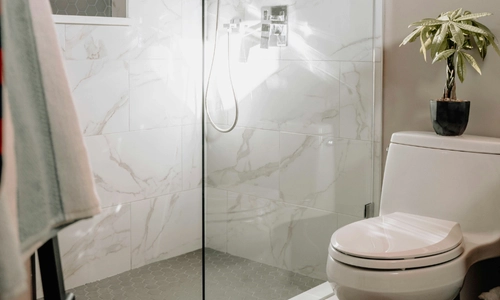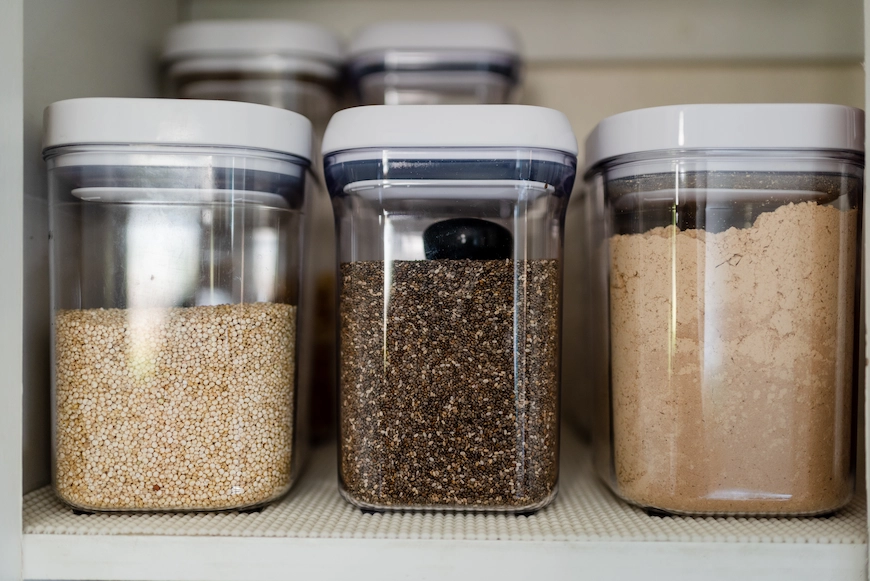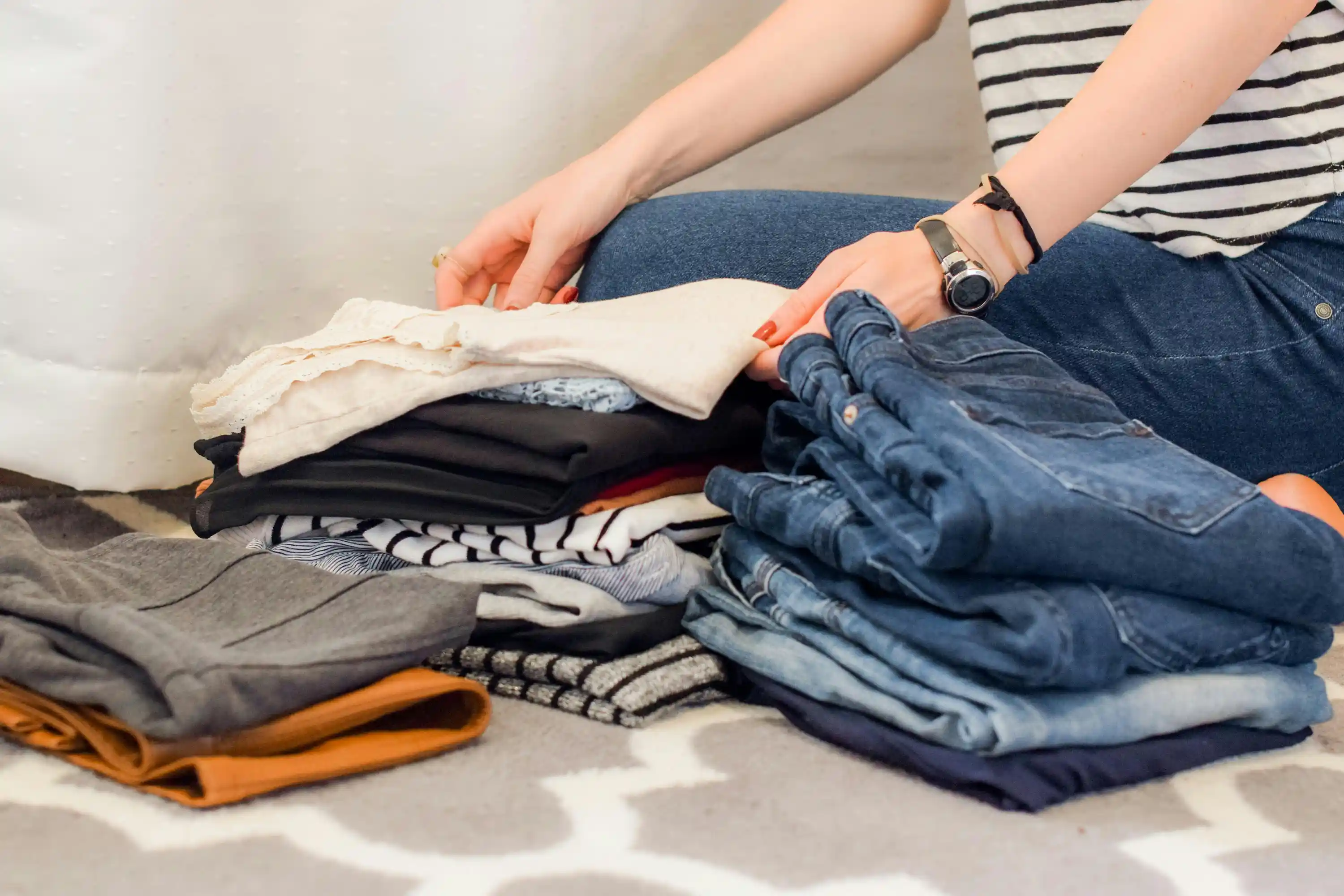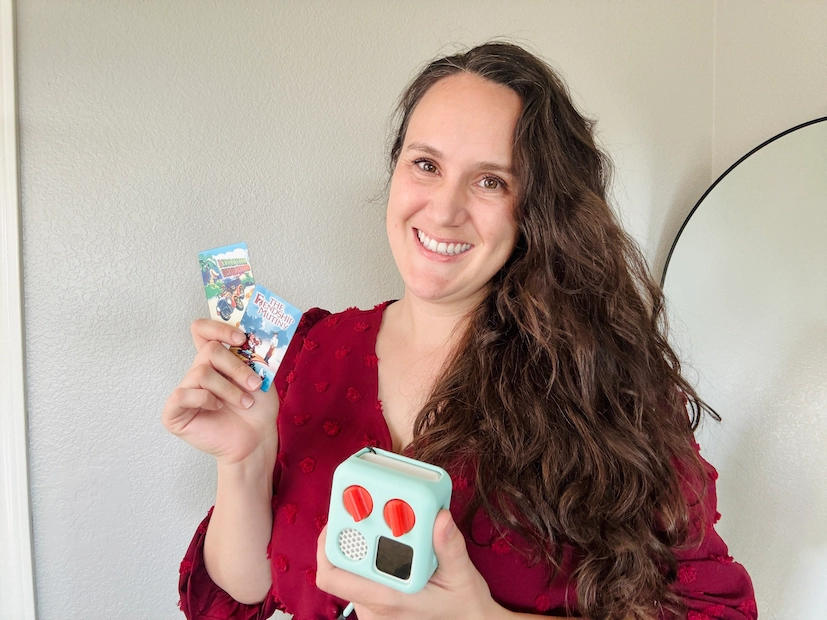
Understanding Hard Water and Its Impact
Living in an area with hard water can be challenging. Hard water is water that has a high mineral content, particularly calcium and magnesium. These minerals accumulate as water passes through deposits of limestone, chalk, or gypsum. Over time, this mineral buildup can cause scale in pipes, water heaters, and appliances, reducing their efficiency.
One of the most common signs of hard water in your home is water spots on your glassware after washing. This is also evident on shower doors, where calcium deposits create stubborn, unsightly build-up. Recently, we had to replace our water heater, and we were shocked at the amount of sediment and minerals that had accumulated—adding significant weight to the tank.
The Struggle with Calcium Buildup on Shower Doors
Our shower door gets hit hard with calcium deposits from the hard water, even though we use a showerhead filter. We also confess—we’re not the best at drying off the shower door after each shower. After trying numerous cleaning methods like Windex, lemon juice, baking soda, and vinegar, nothing worked to remove the tough calcium buildup.
Typical glass cleaners like Windex aren’t effective against calcium deposits because they don’t break down the minerals. In fact, Windex can leave behind a film due to its ammonia content, which can react with oils or dirt on the glass. While natural cleaners like lemon juice, baking soda, and vinegar are great for many cleaning tasks, they’re simply not abrasive enough to tackle the heavy calcium and limescale buildup on shower doors.
The Game-Changing Solution: Gojo Soap
After much trial and error, I found a solution that doesn’t require much elbow grease or time—Gojo soap. Originally designed to remove heavy-duty dirt, grease, and grime from hands, Gojo works wonders on glass surfaces too.
I first discovered Gojo in a public restroom. After using it, I noticed my engagement ring was sparkling like it had just been professionally cleaned. Gojo is gentle enough for glass because glass is a hard, smooth surface that resists scratches. The Pumice particles in Gojo effectively scrub away tough substances like oil, grease, and calcium deposits.
How to Remove Hard Calcium Build-Up on Shower Door Glass
Here’s how you can use Gojo soap to remove calcium buildup on your shower doors:
- Grab a scrub brush with bristles and generously apply a few pumps of Gojo soap onto it.
- Scrub the glass in a circular motion to break down the calcium deposits.
- Rinse the door thoroughly to remove any soap residue.
- Dry the glass with a clean towel to prevent new spots from forming.
FAQs About Using Gojo Soap
Does Gojo Soap Expire?
Yes, Gojo Orange Pumice Hand Cleaner has a shelf life of three years. While I don’t recommend using expired products, I’ve been using the same bottle of Gojo for over three years without noticing any loss of effectiveness. A little goes a long way!
Does Gojo Scratch Glass?
No, Gojo won’t scratch your shower door glass. Glass is hard and smooth, making it resistant to scratches. However, it’s always wise to test in an inconspicuous area first.
What Else Can You Use Gojo For?
Gojo isn’t just for your shower doors. I use it to shine my wedding and engagement rings when they get dull. It’s also great for polishing flower vases and other glassware. After gardening, Gojo is my go-to for thoroughly cleaning my hands. It even removes sticky substances like tree sap with ease.














